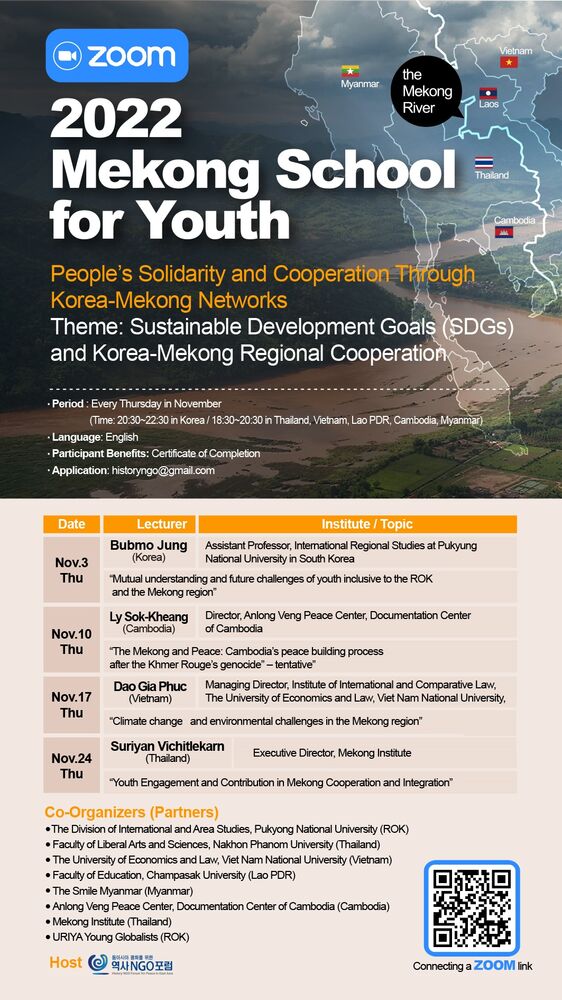“Mekong Institute (MI) believes in the power of young people. The more active the youth are, the more sustainable, inclusive and stable our developments can be.”
This was the key message of Mr. Suriyan Vichitlekarn, MI Executive Director, at the “Mekong School for Youth: People’s Solidarity and Cooperation through Korea-Mekong networks” webinar on November 24.
As a key speaker at the event, he emphasized that youth participation matters in regional cooperation and integration, particularly in the Mekong region. “Though the definition of youth by age differs from country to country, it is estimated that young people make up more than 30% of the population in the Mekong region. What this data is telling us is that the Mekong Countries need to invest more in youth. The underlying message is that collaborative actions at the regional level focusing on youth development, particularly at the Mekong and ASEAN level, could complement national efforts.”
In highlighting the significant role that youth can play in sustainable development efforts, he also acknowledged the challenges that many young people are facing. These range from lack of education opportunities, lack of effective youth policies, unemployment/lack of decent jobs and lack of participation mechanisms.
To remove these barriers, governments and organizations have developed various Mekong Cooperation Frameworks with the aim of enhancing youth participation. These include the GMS Youth Forum, which is a series of events and activities held during the run-up to the GMS Leaders Summits, the Lancang-Mekong Youth Exchange and University-City Cooperation Forum, the ROK-Mekong Youth Group Workshop, and Mekong Skills2Work (MS2W) Network, to name a few. To end his speech, Mr. Suriyan said he looked forward to having the opportunity to work more closely with the youth and various stakeholders in removing certain barriers such as restrictive laws, policies, behaviors, values and beliefs, and in proposing recommendations for reform measures.
The event was co-organised by the Division of International and Area Studies, Pukyong National University (ROK), Faculty of Liberal Arts and Sciences, Nakhon Pathom University (Thailand), The University of Economics and Law, Viet Nam National University (Viet Nam), Faculty of Education, Champasak University (Lao PDR), The Smile Myanmar (Myanmar), Anlong Veng Peace Center, Documentation Center of Cambodia (Cambodia), Uriya Young Globalists (ROK), and MI.








